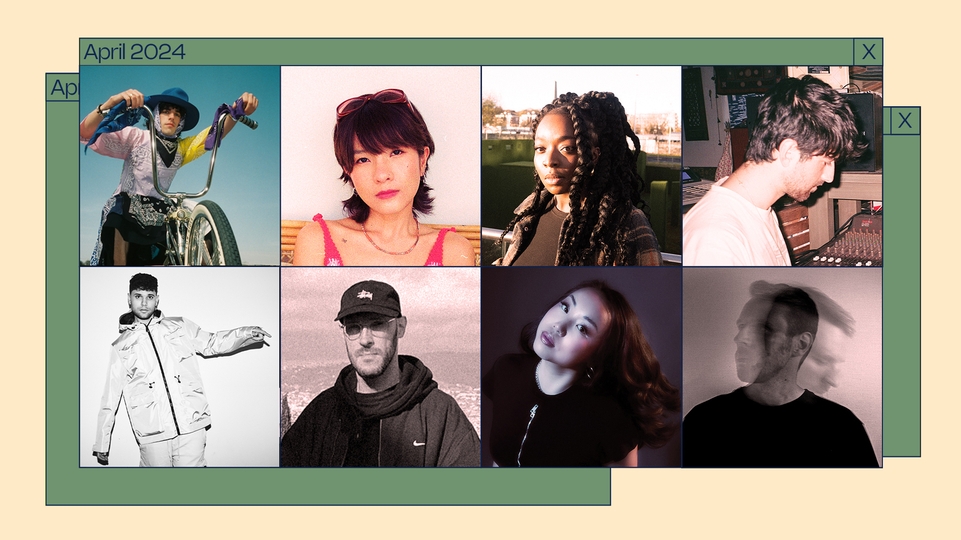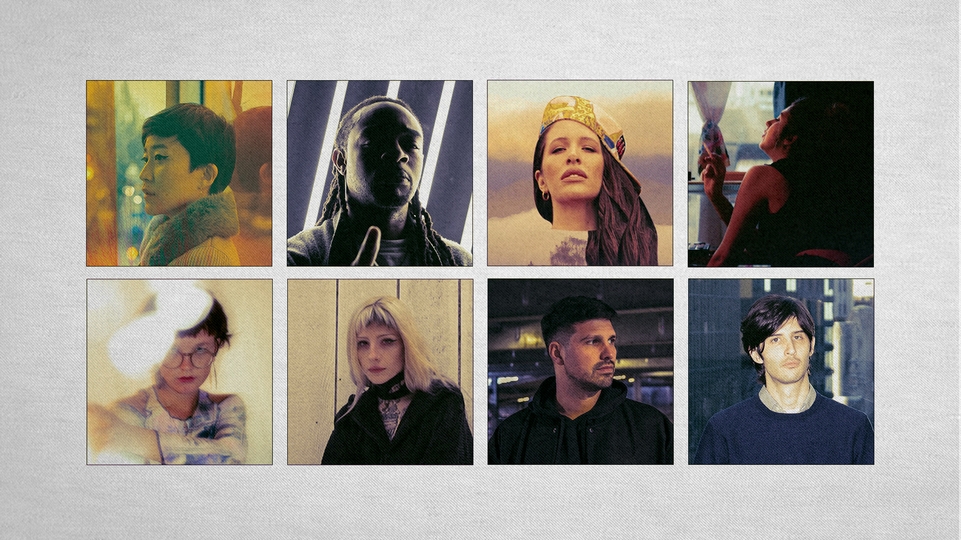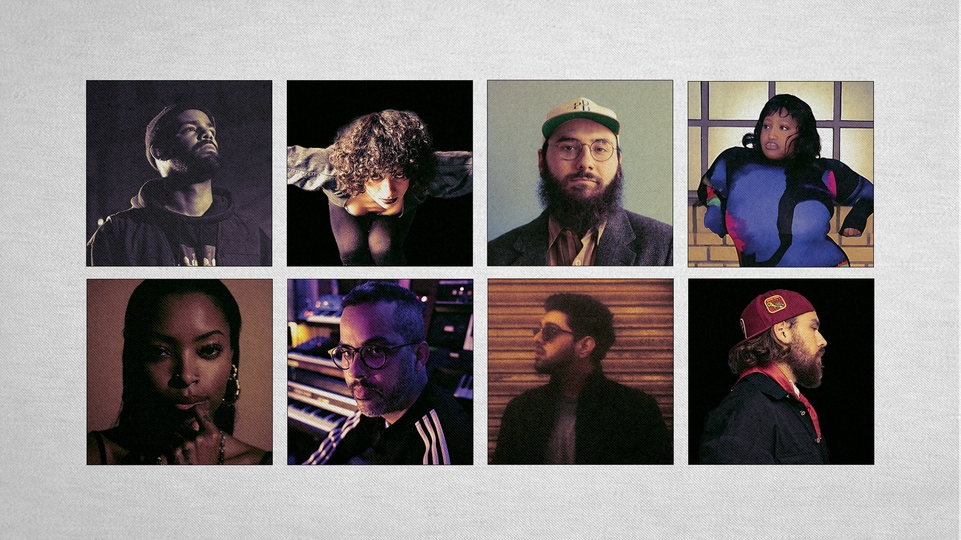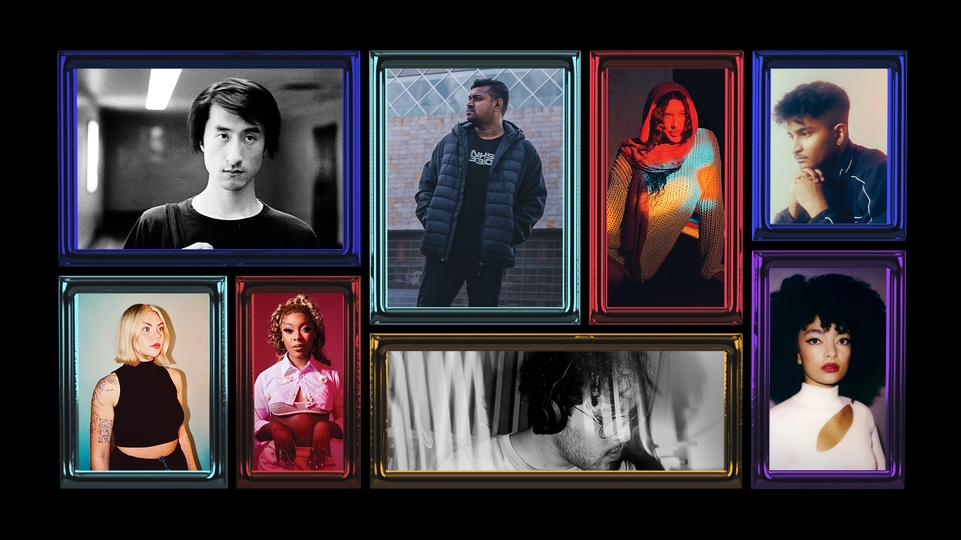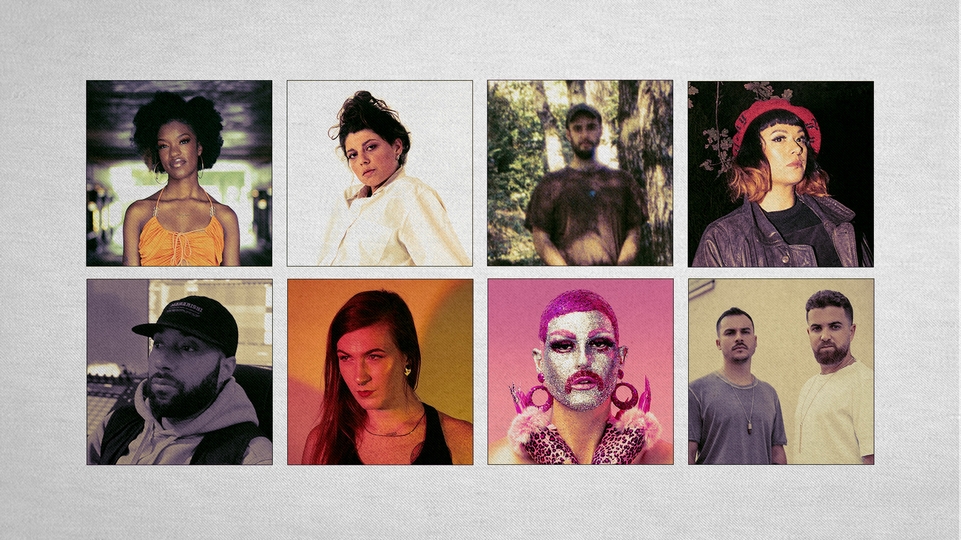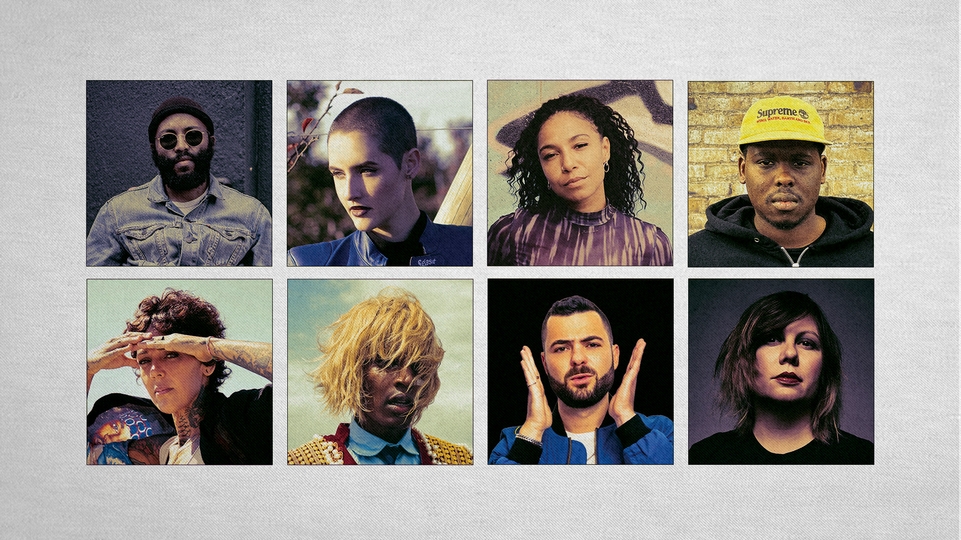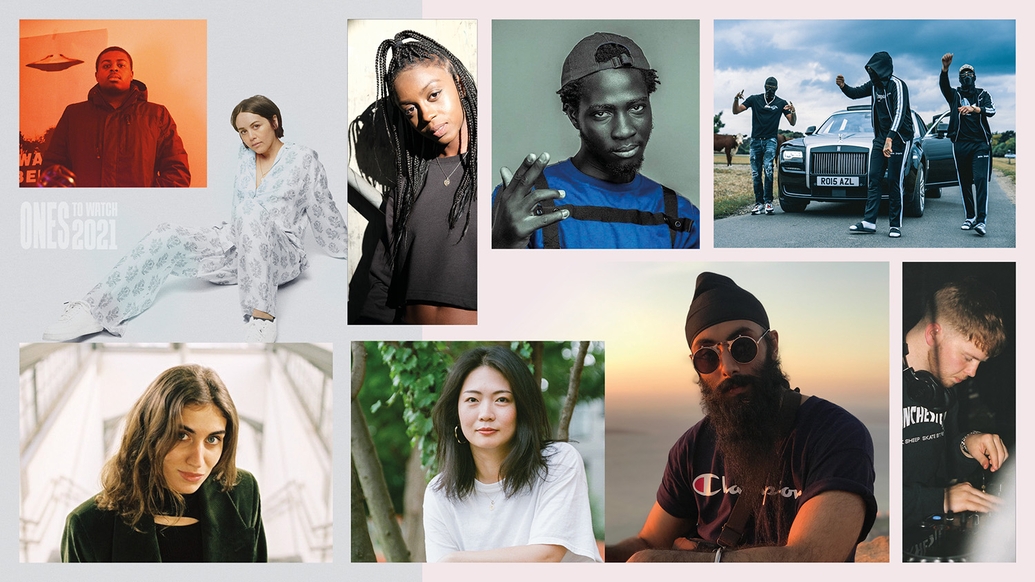
DJ Mag's artists to watch in 2021
Introducing the artists set to make waves this year: from UK rap and Ghanain Asakaa through to techno, house and genre fusionists at the cutting edge of the global scene
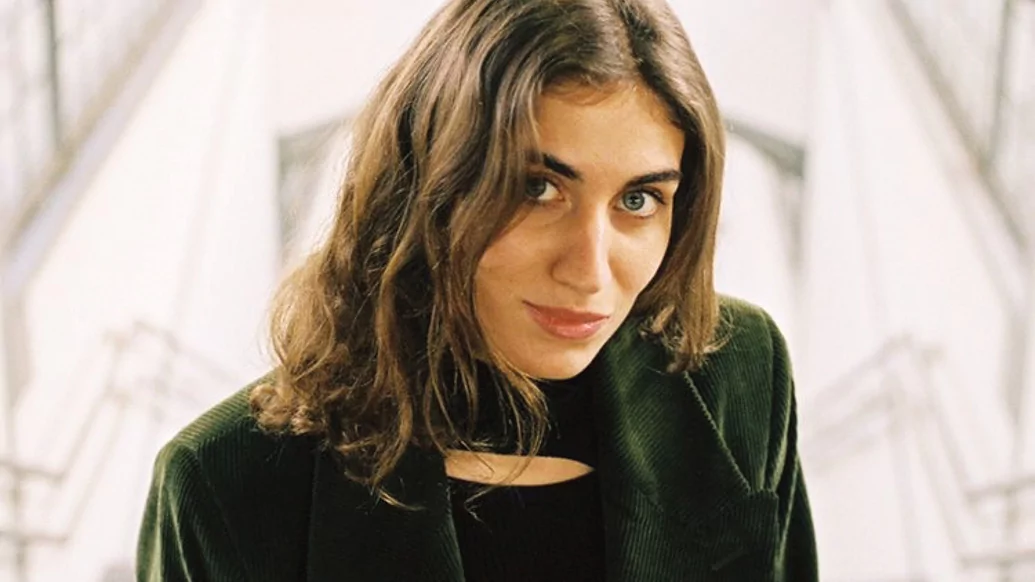

“I’m into mental, groovy, tribal techno than rave and fast Parisian techno,’’ Léa Occhi explains. “But Paris is my city forever, and there are great Parisian crews like MYST, ANGST, Sous Tes Reins, and Spectrum of course.”
The French DJ and founder of the Spectrum collective has soaked up the offerings of Berlin since moving to the city in 2018, but stayed true to her beliefs along the way. “I didn’t recognise my values in Parisian parties anymore,” she says. “I was looking for freedom, respect and tolerance. With my partner and friend David, we created our own collective, Spectrum, in 2017 to share our vision of a party; groovy techno in a safe place without any judgements.”
Having curated a series of intimate events in La Station - Gare des Mines, Cabaret Sauvage and NF-34, Léa’s profile began to take shape as she brought the vision of Spectrum to life on the French techno circuit.
After a year of developing Spectrum and finessing her sound, Léa made the bold move to Germany. For her, the contrast between the techno scenes of Paris and Berlin was palpable. “It was so different! Honestly, I really recognised myself in the Berlin scene for the reasons I said before — there’s more respect, tolerance, and maturity here.”
Starting from scratch, Léa began to navigate the wealth of parties on hand and instantly became inspired by the like- minded artists who soundtracked and frequented the nights she attended. “I came without any contacts from the techno scene, but with meetings, good communication and a touch of luck, I played in many clubs here. I especially remember my gig at Tresor in 2019, which meant a lot for me, as you can imagine.”
The tones of industrial techno do not resonate with Léa. Her sets weave cosmic textures with sparkling percussion, creating otherworldly atmospheres with a hint of melancholy. Gliding from mesmerising melodies to heavier, dancefloor-orientated cuts, ethereal techno is the blueprint of Léa’s collection.
Her evolving trajectory could have come to a swift halt once the pandemic hit. However, several platforms in Berlin adapted quickly to the situation, resulting in a plethora of online outlets ready to stream local talent from the German capital. The presence of HÖR Radio and United We Stream grew significantly overnight, and soon enough, Léa migrated to these channels while clubs shut down.
“My HÖR livestreams gave me good visibility in Berlin,” she says. “I started an official Spectrum residency with them, I’m really happy about that! I also did nice livestreams for Clubbing TV, RAW, Suicide Circus and Glazart Paris.”
Of course, no stream can replace the thrill of captivating a thronged dancefloor. Early last year, Léa supported I Hate Models and SNTS in Lille, and during the Summer of COVID, she played a handful of outdoor gigs in Berlin, as well as a one-off event supporting Tommy Four Seven in a sky loft atop a mountain in Bulgaria — a highlight in every sense of the word.
As 2021 marks the start of a new chapter, music production is something that Léa is curious about but not prioritising. “I definitely want to experiment and create my own music. Now is a good period; winter always inspires me.” But her focus for the near future remains solely on DJing. “I’m working on my next showcase for HÖR. News on podcasts and livestreams are in the discussion too. Concerning parties, let’s see how this year goes.”
After the turbulence of 2020, Léa remains grounded. “I believe in music more than everything so I’m confident and waiting patiently.” We’re with her on that one. Niamh O’Connor
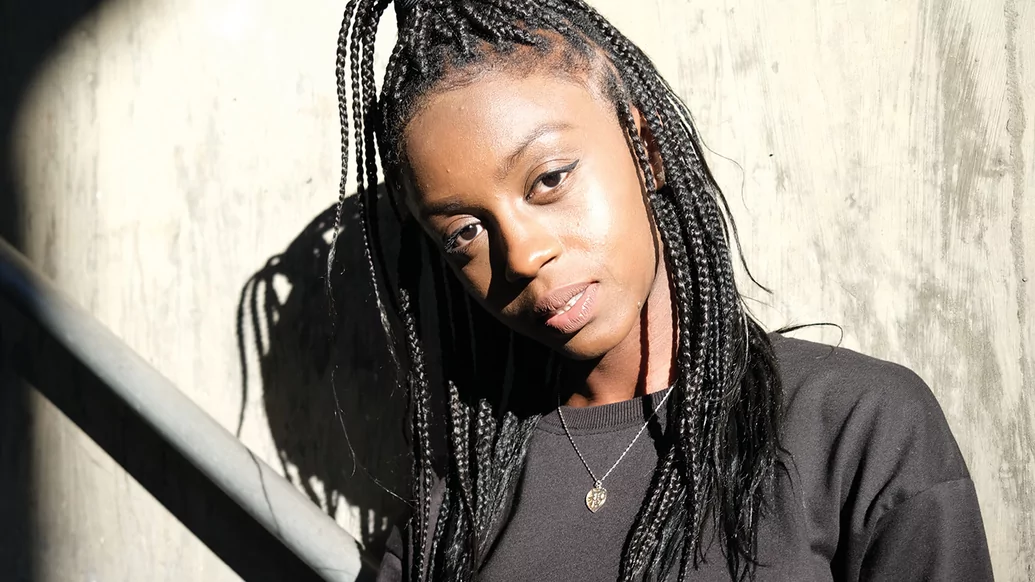

For someone with such a bold, upfront style, Tailor Jae has a modest attitude to her craft. The East London-rooted DJ’s older siblings all pursued music actively, but when she found herself drawn to mixing after outgrowing the iPod at house parties, she preferred to keep it to herself. “I was a bit shy to show I was DJing,” she confesses, “and I like to do things for myself. When I started gigging, I’d have a big bag with my controller in it and my mum would say, ‘Where are you going?’ I’d say, ‘I’m just going, you know, out.’ It’s cool, she knows now!”
A self-confessed raver at heart, Jae grew up on a steady diet of Channel U grime videos and MTV’s chart-topping ‘90s dance classics. Those twin influences feed into her sound now — bashy and underground in one breath, bright and anthemic in the next. Even with a grime MC for an older brother, Jae’s private nature meant she had to largely figure out DJing for herself.
“I never had that cool cousin that had lots of vinyl or whoever,” she tells DJ Mag. “I didn’t have any clue about any of this music. The most underground for me was the grime stuff. When I first started DJing I was playing more housey, EDM stuff in bars, and then a bit more of the grimey stuff once I got to know a bit more about it and where I could get hold of it.”
Even if grime is a prominent fixture in Jae’s sets, it’s but one part of a kaleidoscopic sound that takes in a generous dose of bassline, jungle, 4/4 and smatterings of R&B edits, stitched together in quick mixes that maintain a vibrant momentum. Even if you’re not likely to hear her play them now, she name-checks the likes of Dusky and Chase & Status as key early clubbing experiences, but more recent breakthroughs have taken her deeper into the underground roots of bassweight club music.
“Around 2018 I went to one of El-B’s Ghost parties, and that literally changed everything for me,” she enthuses. “For me, that style, like Ghost and Horsepower Productions, where the basslines are melodic but it’s still dark and hits you right in the gut... it’s just so timeless. The atmosphere there was just insane. I went on my own and I had the best time ever.”
Jae’s self-reliant pursuit of the club music that makes her tick has carried her far, despite never having a specific game-plan with DJing — after winning a competition that earned her a slot at XOYO in 2018, she notched up countless gigs across London the following year, only for things to predictably slow down in the pandemic-induced lull of 2020. From painfully quiet soundsystems to being reprimanded by bouncers for dancing, socially-distanced sit-down sessions haven’t been a natural fit for Jae’s lively response to music, but she’s made the best of a tedious situation.
“Generally, it’s been cool,” she says. “I did a gig in Brighton which was inside, and everyone was just sitting down staring! I’ve been working on mixes, I’ve done a bit of radio, and I’m studying a bit more in terms of music production, trying to find my sound and style.”
Jae already has a production credit alongside Traces for the track ‘Thief’, a chance collaboration that happened at the Point Blank music college. But in her typically patient approach, she’s taking time to find her own path when it comes to working on her own music. “I’m very much like, ‘What do I want my style to represent?’ Your sound comes with time. I’m getting there, in terms of feeling like, ‘I can’t wait to play this out’, but I’m still taking my time.” There’s just one crucial missing element that she needs to know her tracks are ready. “I have to know how it feels in a club.” Oli Warwick
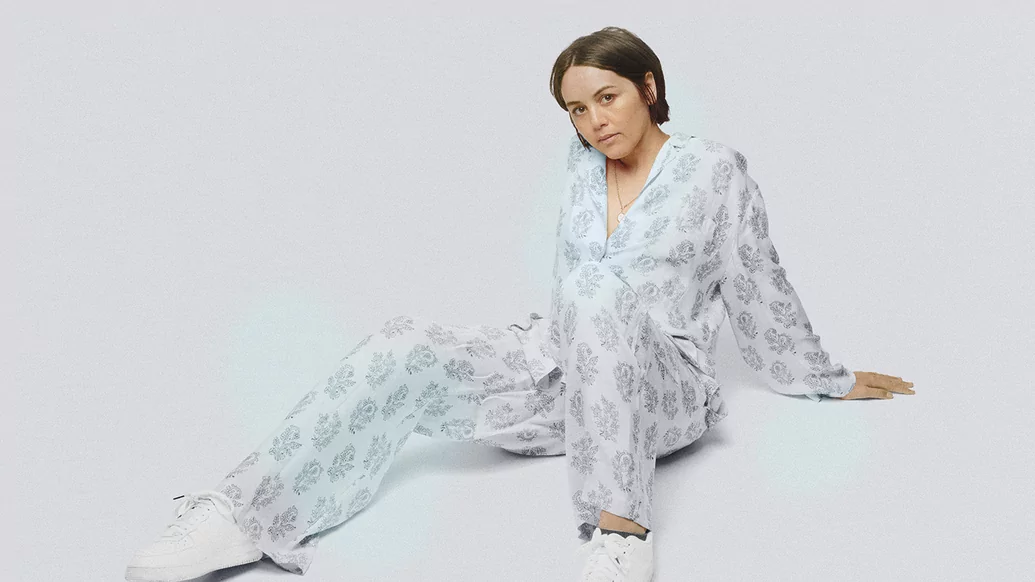

“I see music as therapeutic and it has been throughout my whole life,” Berlin-based producer Logic1000 says over Zoom from her sunny flat. Flanked by her rescue dog, Bibba, Logic1000 — née Samantha Poulter — has just finished her latest EP, ‘You’ve Got The Whole Night To Go’, and is contentedly basking in the aftermath of a completed project. “Music is an element of escapism for me,” Poulter continues, “because whenever I’ve been unwell or I’m having a hard time, I’ve always turned to music to uplift me.”
It is apt, then, that this latest EP is released on Logic1000’s recently formed label, Therapy, which functions underneath Because Music, the label the 34-year-old signed to last year. “I wanted to start something that I would have creative control over,” she explains. “It’s a huge undertaking starting a label and there’s so much experience that a bigger label has that I don’t. We work collaboratively, but ultimately, I have full creative control, which is great.”
Two years ago, the mixed-race Australian DJ was living in Sydney, her birthplace, and was mostly a bedroom producer. She had been learning to make music with her now-husband Tom McAlister, aka Cop Envy, and after years of tinkering on Ableton, she released an eponymous debut EP on Melbourne- based label, Sumac. “I never took music that seriously,” Poulter says. “I’ve always been heavily into UK music, but I felt the stuff I was obsessed with wasn’t being made at the time, or maybe I was not hearing or seeking it out as much. So I wanted to make music that I wanted to hear.”
Within a few months of the debut EP, Four Tet described her song ‘DJ Logic Please Forgive Me’ as the track of the year. That passage of time was a welcome embrace that validated her talent. “I had all these insecurities that everyone has about releasing music,” Logic1000 says. “I found out that [Four Tet] played [the song] at Coachella and all these major labels started getting in touch. It felt so surreal. I was very grateful.” After remixes for the likes of Christine & The Queens, Caribou, Don Toliver and Låpsley, Logic1000 is primed with a new release.
‘You’ve Got The Whole Night To Go’ feels like the end of a circle. Across four tracks, the project is looser, spread out over an even playing field rather than the wiry fence she had built herself on her debut EP. Toeing the line between introspection and dancefloor bangers, ably appealing to both with aplomb, the EP’s strength lies in its ability to wear multiple sashes.
“I made it during lockdown,” Poulter says. “It’s similar to the first EP, where it’s an eclectic mix of different genres and styles. But this time, it’s a lot more focused. There are elements in each of the tracks that bind it together.”
The EP was created alongside her husband Tom, who helped co-produce the project as he has with her previous releases. “Originally, I would executive produce tracks and I wouldn’t even touch Ableton,” she admits. “I would dictate what I would want him to do. Now that I know a bit more about the software, we both trust each other with our creative decisions and we work together on tracks. We’ll go into the studio and it’s more of a conversation now.”
Though Poulter’s completed an EP, she’s still using Berlin’s stay-at-home orders to bunker down in her studio, working on future projects. “I don’t know if I see myself as an album artist, but I’m open to it,” she says. “I’m working on tracks currently because that’s how I work, but I think one day, maybe in a couple of years, I’ll release an album.”
Having been catapulted from her bedroom to a global stage in less than 24 months, Poulter is still wary of the fickleness of the music industry. And she’s always had a hidden desire that if all else fails, she hopes she can turn to her love of flowers and bouquets, something she wishfully thinks of having as an alternate career. “In the next 10 years,” she says with a laugh, “if I somehow can’t do music anymore, I would be a florist in Mallorca.” Dhruva Balram


No one could accuse Yung Singh of resting on his laurels while clubland was on hiatus. A DJ who prides himself on reading the room, he calls his hat-trick of early gigs at Corsica Studios, XOYO and Fabric luck, but as we all know that’s just a mixture of opportunity and the right attitude. His response to a dearth of club gigs in 2020 was to dig deeper into his sound and forge new connections, becoming a highly visible figure across radio shows and mix series.
Standing out amongst his prolific run on the virtual airwaves was his masterclass in Punjabi garage for Shuffle ‘n’ Swing. Singh was resolute in shining a light on this rich and vibrant corner of UK club music, dispelling the short-sighted myth that Punjabi dance music starts and ends with Punjabi MC’s ‘Mundian To Bach Ke’. “That Punjabi MC track is the only [Punjabi dance track] that hit the mainstream,” Singh points out, “but we’ve got artists from the UK that are international stars. No one seems to talk about or appreciate it, even though we have this amazing culture of artistry within the Punjabi community.”
Singh holds the book he’s reading up to the camera — Dis-Orienting Rhythms: The Politics Of The New Asian Dance Music by Sanjay Sharma, John Hutnyk and Ashwani Sharma. “There’s an entire section about how Asian people are always portrayed in popular media as un-cool, hardworking, or conformist, whereas a lot of this music, which originated from underground day-timer raves in the ‘90s, is quite rebellious. So much of this amazing music has been forgotten about. The garage mix I did was a really good example of that. It’s not just good Punjabi music or Punjabi garage. This is just good garage.”
A ‘Punjabi Soundsystem’ set for Manara’s show on BBC Asian Network followed up the Punjabi garage mix, but Singh is certainly not a purely Punjabi dance music DJ. Typically, for someone growing up in the UK in the ‘90s and ‘00s, he was soaking up his older siblings’ garage, jungle and house before exploring dubstep, grime and UK funky for himself. He talks with reverence about mixes from DJ EZ and Marcus Nasty, and the ‘pressure cooker’ intensity of the Sophbeck basement club in Leicester where he cut his teeth raving. It’s that energy he channels into his DJing now.
“I want to continue shining a light on South Asian artists and music,” he clarifies. “The collective I’m involved in, Daytimers, is named after the daytime bhangra parties from the ‘80s and ‘90s. But I was worried about being pigeon-holed. I love playing music full stop — UK funky, jungle, house — all sorts of stuff.”
Singh’s role within the Daytimers collective is central to his progression as a DJ. The project hit its stride in December 2020 with a mammoth compilation shining a light on new South Asian talent, but communication and education is an equally key facet for the assembled crew. Singh is at pains to credit the foundational work and support of his colleagues and peers from the South Asian diaspora. He holds Rosh, Manara, Raji Rags, Ahadadream and anu in the highest estimation for helping normalise the presence of brown DJs within the wider club scene. Community is a vital facet to his artistic progression as he looks with hope towards a 2021 where he can develop his work with Daytimers, explore production and return to club gigs. All while training to be a doctor, no less.
“Going out less over the last nine months, I’ve been able to concentrate and streamline my life a little bit,” he admits, “and hopefully I’ll be able to carry that on next year while still doing all the DJ stuff. I want to spend more time doing Daytimers, building a really solid foundation not just for me, but the community itself. Because it’s unfair to claim community but then not give anything back to that community.” Oli Warwick
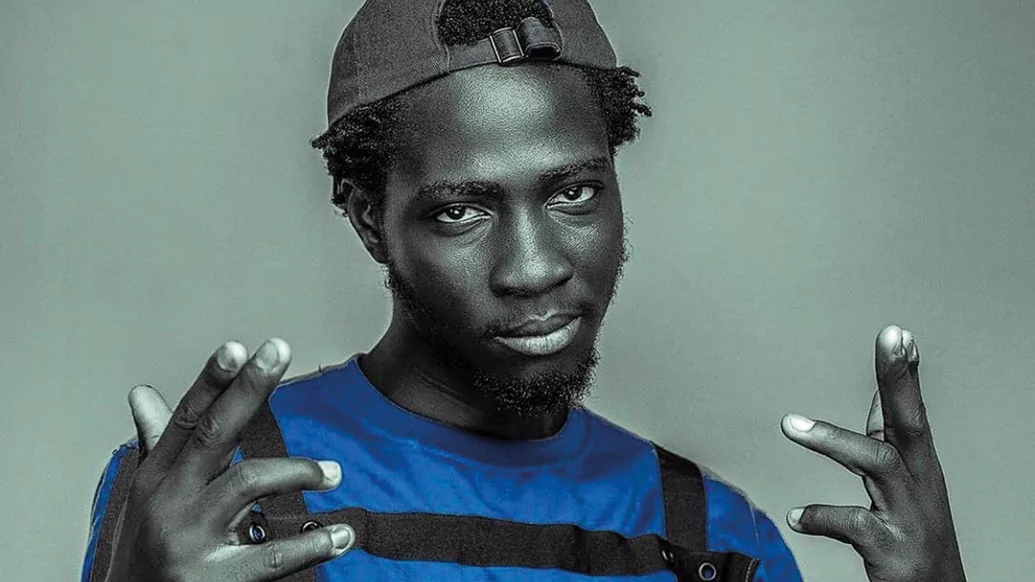

In 2020, drill continued to expand — sonically, thematically and geographically. Nascent drill scenes are developing across the globe, from Australia to Italy. Of all drill’s hyper-localised iterations, the sound coming out of the city of Kumasi in Ghana has created one of the biggest buzzes, fusing the grit of UK drill and the grandiosity of its New York counterpart with local influences.
At the forefront of Kumasi’s scene is the Life Living Records label, and their crop of exciting young artists. Amongst those, it’s the deep, melodic tones of O’Kenneth who demands your attention. But it’s his label mates, City Boy, Jay Bahd, Reggie and Kwaku DMC that bring the best out of O’Kenneth and push his sound forward. He tells DJ Mag, “My inspiration is my family. I’m surrounded by them each and every time. They inspire me to do better, you feel me? We challenge ourselves.”
He shines on the scene’s two breakout hits, ‘Akatafoc’ and ‘Sore’. Both are posse cuts, showcasing Life Living’s roster. He provides a gravelly sung hook on the former, while his melodic verse on ‘Sore’ is a gorgeously textured fusion of English, Twi and Pidgin. That both tracks are produced by Cardiff-based teenage producer Chris Rich is symbolic of drill’s organic, youth-led character.
Kumasi has long been a hub of culture and innovation. It makes sense that Ghana’s latest musical export was born the city. O’Kenneth explains, “Kumasi is known worldwide for Ashanti culture. It’s always been recognised because of our rich history in music too. Young artists from Kumasi are always trying to be different and do better.”
The youth of Kumasi’s US-inspired flex against-all-odds energy has earned the city the sobriquet ‘Kumerica’. Outsiders have mistakenly labelled the music emanating from Kumasi’s streets as ‘Kumerican’ drill. He tells DJ Mag, “It’s actually Asakaa, not Kumerican drill. It symbolises something important for us. Asakaa is more like a lifestyle. The Asakaa lifestyle isn’t that different from the drill lifestyle. The only difference is how we translate it, how we see it, how we write it, talk it and dress it. It’s African, and Africa has its own circumstances, you know?”
Both lyrically, and in his music’s accompanying visuals, O’Kenneth makes reference to Blood culture, but there’s historical nuance in his affinity with the red bandana. He explains, “I rep my culture to the core. I rep it in my verses. And the colour red has a lot of meaning in our culture, it means you are war-ready, you feel me? That’s what it symbolises for us. In the olden days, if you saw a group of people with the colour red, it meant they were war-ready. That’s how important the colour is for us.”
‘Straight Outta Kumerica’ — O’Kenneth’s collaborative EP with Reggie Osei — features a broad spectrum of sounds, from buttery smooth trap to the funereal keys of UK drill. His most recent offering — a poignant, reflective verse over the string-led production of Chicogod’s ‘10 Toes’ — points towards genuine artistic depth and musicality. Like the late Pop Smoke and our own chart-topping Headie One, he’s clearly not content with being boxed-in by rigid definitions of genre, and wants to continue to flourish this year. “Asakaa is everywhere now, and people really fuck with it — Ghana, Africa and worldwide. In 2021 we are active, we are dropping tapes, videos. We are active in the studio, cooking!” Robert Kazandjian
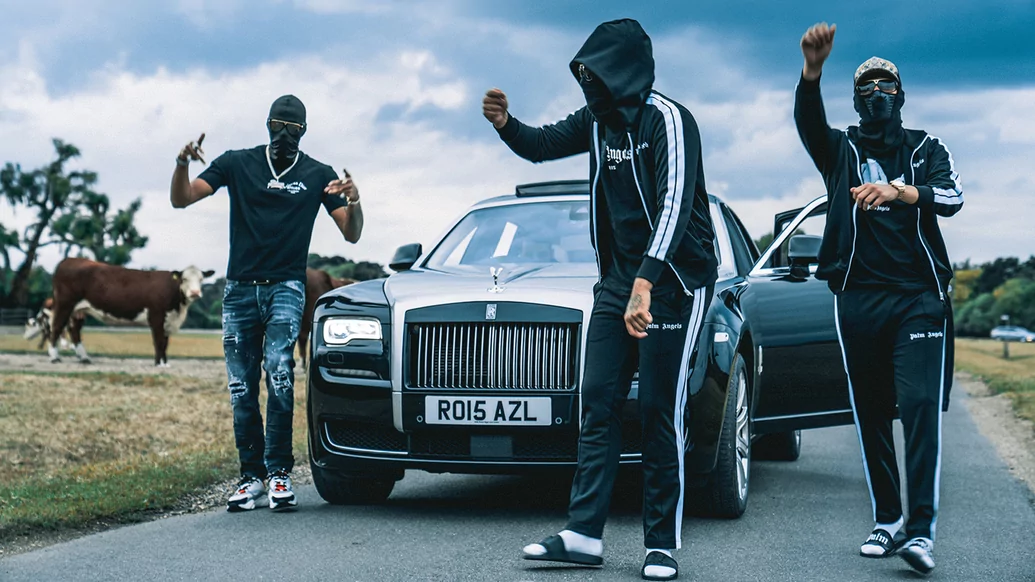

Having racked up almost 30 million YouTube views at the time of writing, Country Dons may seem a strange choice for our Artists to Watch in 2021. But, despite blowing up instantly when their debut track ‘Sticky Situations’ landed just over 12 months ago, the UK rap group still have only five releases to their name.
The trio are made up of MCs Rocky, Blaze and Maroc. While the latter pair have been friends since school, they met Rocky — who had already been releasing music under his own name — around five years ago. “Rapping was more of a hobby for us,” Maroc tells DJ Mag. “We never took it that seriously. But when we met up with Rocky, we all came through together as a group.”
As their name suggests, Country Dons are from a place not often associated with the latest UK MCs breaking through: Farnborough in Hampshire. “There is talent all over the place,” Maroc enthuses. “The whole country part: that’s our niche. We wanted to show people it can be done. That you don’t need to be from London to be taken seriously. We’re only 20 minutes away from London. And the majority of our time is spent there — I've got a massive family base in London. Rocky's got a lot of family in London — but we’re trying to keep it 100 where we’re from.”
Since ‘Sticky Situations’ — a classic-sounding UK drill track underpinned with a rumbling Reese bass — Country Dons have used their subsequent releases to showcase their versatility as a trio. Between the three MCs, they have the scope to deliver huge hooks (see: ‘Ramsay’) and wordplay in verses across a wide bpm range; their most recent cut is a UK take on trap that sees bars take a backseat in favour of singing.
Alongside their five releases, the trio also recently delivered an ice-cold Fire in the Booth freestyle for Charlie Sloth, which despite being their first live performance together saw impeccable delivery from all three MCs. “Everything we’ve done [before that] was pre-recorded in booths,” explains Maroc. “But it’s about coming out of your comfort zone. We prepped for a week or two before to make sure we weren’t going in there on our phones.”
Lyrically Maroc describes what the Country Dons spit about as “real shit”, and says they wouldn’t feel comfortable rapping about something they hadn’t experienced. The bar on the main hook for their first single says, “Sticky situations, I ain’t ever looking back, if the music don’t work, then I’m heading to the trap”.
“A lot of people will look at us and automatically assume we’re a gang,” he explains. “But we’re doing music to get away from that life. It’s not a front. Everything we talk about is as real as it gets. You can’t live in a shit situation for the rest of your life as it will only get worse. Music is a way out for a lot of the young generation in England.”
Heading into 2021, Maroc says UK rap is in an exciting place, with a lot of doors opening up for artists. “We're sitting on about six bangers that are ready to release,” he explains. “And we’re looking to drop a mixtape for the fans. It won’t have any outside features, but lots from people who are members of Country Dons that also rap but haven't had the opportunity to come on the music yet. On that project we’re going to take it back to that real street stuff.” Rob McCallum
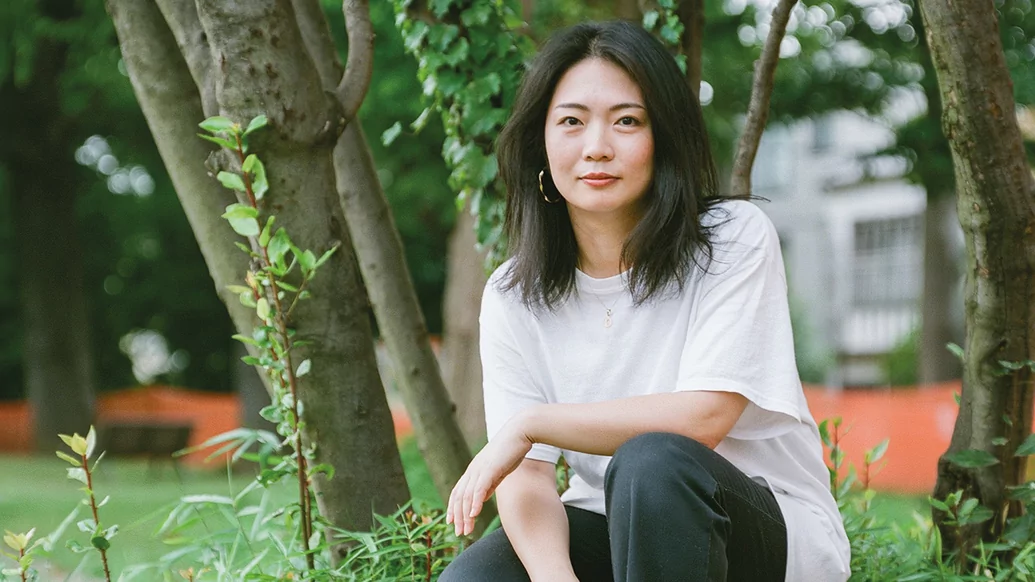

Listen to a mix by Changsie, and you’ll be taken on a wild drive through underground house, electro and full-throttle techno. What shines through most, though, is her love of UK dance music, with hardcore breaks, UK funky drums and garage flavours the main ingredients in her dancefloor recipe.
“I can’t explain why, but I’ve been into UK dance music since I listened to dubstep 10 years ago,” she says. “I especially like UK funky and garage. I also like Chicago house, so I always wish I could’ve been in London in 1988, but that was the year I was born!”
Changsie has rapidly risen through the ranks in the past few years, with shows on NTS and Netil Radio and mixes for Discwoman and Crack displaying her distinctive blend of influences and styles. On her latest NTS show, there’s everything from metallic Sheffield clangs to rude square-wave basslines, via 4hero’s ‘Mr Kirk’s Nightmare’, rolling breaks and summery, dub bass-driven garage. Drawing influences from “DJ Deeon, Omar S, Rushmore and Josey Rebelle”, for Changsie, moving between different forms of music — and keeping the listener on their toes — is exciting.
“I enjoy finding the common groove in different genres and mixing them,” she says. “I also like a DJ mix that has a small surprise in it.”
In Chiba, Japan, when she was growing up, Changsie’s first musical love was reggae. “I’m from a countryside city, there was only one small club,” she says. “I enjoyed a reggae night very much, so I started to collect reggae tapes, and I was into hip-hop and R&B as well, so began buying vinyl, thinking that I wanted to mix them one day.”
When she moved to Tokyo, Changsie bought turntables and a mixer, and gradually became obsessed with dance music. She started DJing in bars, before becoming a resident at the Joyride club night. There, she built up a dedicated following for her sets, moving from UK-geared beats to the deeper house and techno sounds of Chicago and Detroit. Changsie relocated to London at the start of 2020, just before the pandemic hit. She considers the city to have a busier scene (in normal times) than Tokyo, and she likes the idea of bringing that bustle to the less well-attended venues in Japan. “I think the amount of people who go to clubs, and the amount of producers, are definitely more than in Tokyo,” she says. “The artists in Tokyo are so cool as well, so I want to increase the number of people who go to clubs [there] and change the impression of dance music as an art.”
Currently in Japan, she’ll be back in the UK in the spring, and hopes that after the Coronavirus crisis has abated she can try to launch a new club night. “I found some of my favourite venues in London,” Changsie says, “especially in the Southeast area. I’m planning to ask them after the pandemic.”
There are also plans to begin producing her own tracks: “I haven’t made music yet, but will try it in the near future”. If Changsie’s tracks sound anything like her DJ sets, we’re in for a treat. Ben Murphy
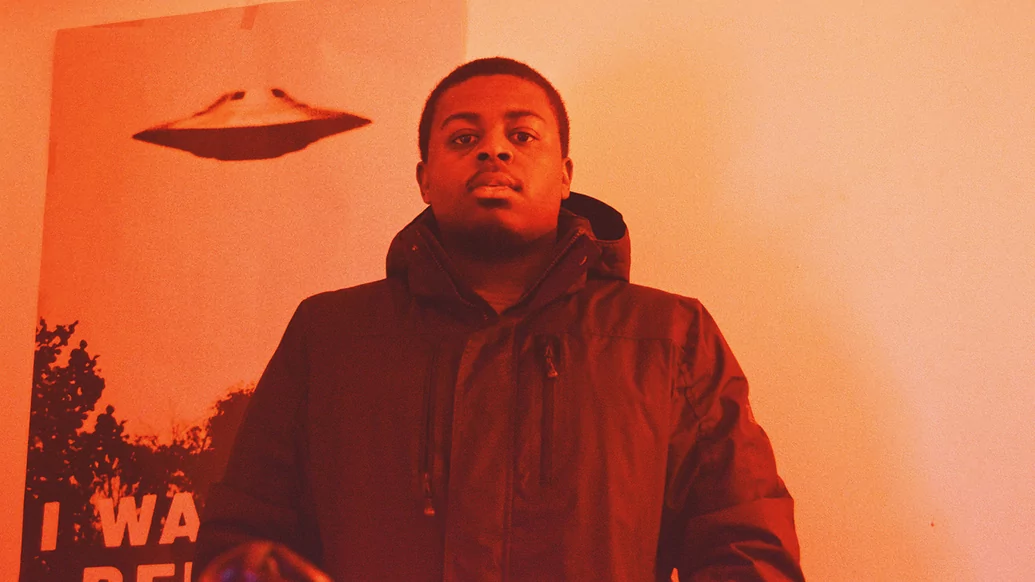

For the past five years, Kareem Ali has been a prolific producer. "Sometimes it can be a few hours, or up to 16 hours a day," he says of how long he spends writing. That will be no surprise to anyone familiar with the New York-born, Phoenix, Arizona-based producer, who’s put out nine albums in the last 18 months. While his style can very loosely be characterised as soulful and dusty deep house and techno, it is infused with so much more: political commentary, the spirit of science fiction, thrillingly inventive rhythms, Afrofuturism, and a real musicianship that comes from 17 years as a trumpet player.
Amazingly, given his strong singular sound, Ali is a late comer to electronic music. While studying jazz at college in New York, a studio engineer introduced him to Ableton and some electronic music from Miles Davis and Flying Lotus. He immediately switched his musical focus. "I definitely had to learn the rules first," he says, "then once I mastered it, I was able to create my own style."
Around the same time, and because of a fascination with space that dates back to his school days, learning how Harriet Tubman led runaway slaves to freedom using the North star as a guide, Ali happened to Google "space music" and stumbled upon a Boiler Room set from Windy City duo Innerspace Halflife that hooked him in. He set about making some of his own similar sounding material and sent it to Hakim Murphy, one half of the duo, who eventually released it and became a mentor.
"I hadn't known about house and techno's Black roots until 2014," he says, still bemused at the fact he thought its genesis was in Europe. "It's definitely time for Black artists to regain control of the music we created and time for us to develop platforms to share the true history of this music. Without the knowledge of history, we are lost."
To that end, he runs his own non-profit label CosmoFlux, which he hopes will give young Black artists a platform to release music, share ideas and develop skills, as well as giving them "the hope, inspiration and courage to keep pushing, rising and advancing." He admits it is still in the early stages, but adds "it won't be limited to just music. I want to incorporate all the arts. As Black Americans we lost so much of our history due to slavery and racist institutions that intentionally failed to teach us about the Black people who built the United States. It's so important for Black youth to have knowledge of and pride in people who look like them, that came before them and laid the foundations they walk upon today."
Ali embraces his position of influence as a visible Black artist. "Music is so powerful," he says. "The reality is, a lot of people, especially the youth, look to artists for inspiration and guidance." He has already become a mentor to his friend Krystal, aka Kriskiddd, and has produced her first single, 'Somebody Find Me'. "It has been a blessing to be able to share my knowledge and help develop her musical gift," he says, adding that as well as a wealth of his own new music, this year he also plans to start teaching music and music history in Black and Brown communities. Kristan J Caryl
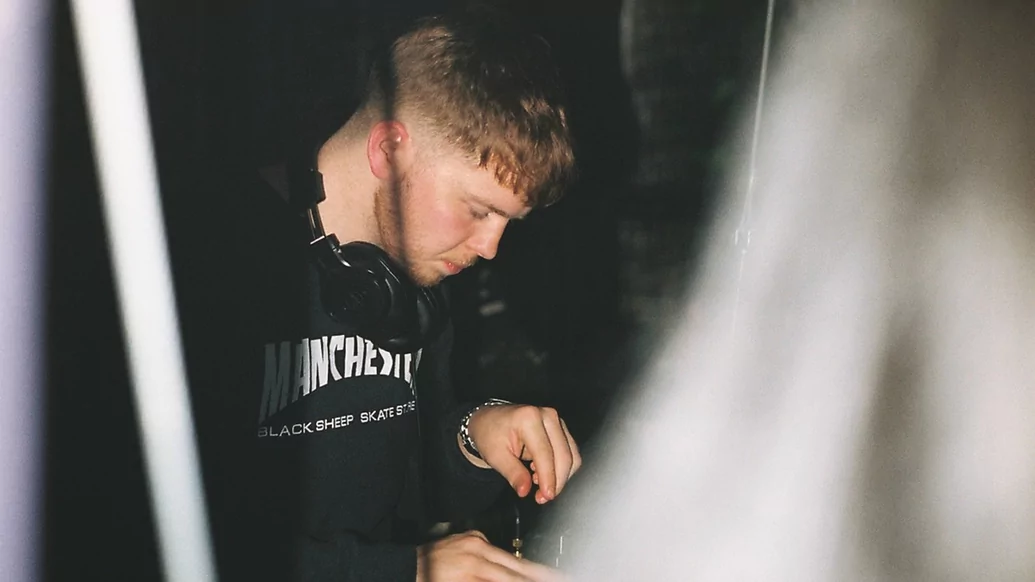

To say chaos and mayhem reigned supreme in 2020 is a huge understatement. The pandemic’s pause on life as we knew it was enough to take the wind out of everyone’s sails, if not send them into a chilling spiral. But when we speak with 23-year-old DJ and producer Patrick Holly from his home in Greater Manchester, on a particularly dark and unforgiving winter evening, his calm-yet-upbeat manner is immediately warming.
Until the catastrophe that unfolded last year, the man better known as PADDY had been building some serious momentum. In the space of three years he went from university student trying out mixing for the first time — in and among the party scene of nearby Leeds — to guest slots in cities from Berlin to Melbourne. Then there was the hometown coup he scored playing to thousands at a packed-out Warehouse Project curated by Patrick Topping, who was already supporting the upstart’s studio work in his sets.
While obviously unable to play out in recent months — save for a handful of socially distanced sets, like Leeds open-air summer series Chowdown and a trip to London for a session with Theo Kottis — PADDY has been firmly concentrating on fine-tuning his craft and developing his sound. The evidence is audible — just compare early cuts like the appropriately titled ‘Jazz Handz’ with the chug and cosmic harmonies of ‘She Doesn’t Know’, which dropped on Midnight People in December, or his follow-up for Monki & Friends in January.
“I’d started making disco-influenced stuff in house music, but more recently I’ve gone into an Italo disco sort of route,” he tells us, explaining that investing in new production tools has kept him busy during the ongoing lockdowns. “It has been a crazy year. I think I’ve found the time to get my head clear for when things are back open; practicing with my synths, buying new speakers and focusing on music.
“I’ve been buying hardware to see [how I can get my productions] as close to that 1980s sound I’m loving at the moment,” he continues. We ask what kind of kit he’s most enamoured with, and the answer comes through an audible smile. “It’s a [Novation] MiniNova; it’s just a really nice poly-synth and you can get all these Stranger Things noises out of it. I also really like playing with my 303 as well. And putting them both together you can get some really nice sounds going.”
This stylistic evolution isn’t too surprising. Citing Running Back boss Gerd Janson as a key influence, PADDY also name-checks one of the UK’s most iconic synth bands, which he was introduced to as a kid. “I think one of the biggest, then and now, to ever do it is New Order. You know, they have some records made in the 1980s still hailed as some of the best ever made,” he says. “One that comes to my mind is ‘Bizarre Love Triangle’. It’s such a simple melody and has this drum vibe that’s still used now. It’s iconic, and will probably last another 20-odd years. They’re the kind of guys who pioneered it and from an early age, when my dad was showing me the records, they’ve kept me going trying to get to that sound.”
There’s passion and excitement in PADDY’s voice, suggesting that even when he does reach his goal, it will by no means be the end of his story. Martin Guttridge-Hewitt
